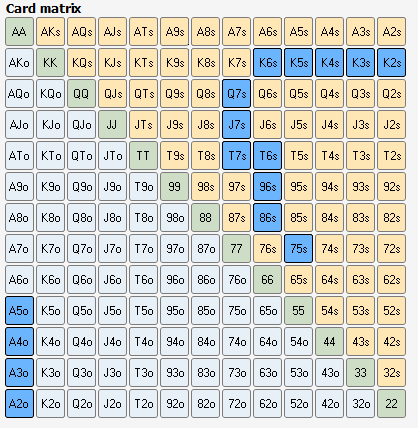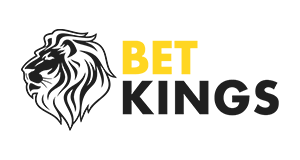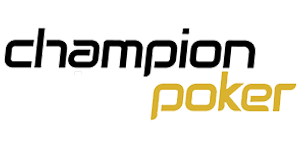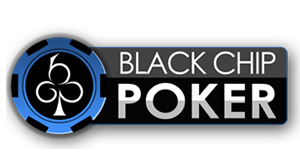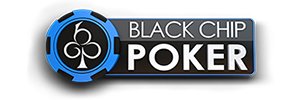How to 3-bet bluff effectively
There are several good reasons to 3-bet bluff.
Firstly, you become very unbalanced by 3betting too much for value. Your opponents will exploit you by folding all but their best hands to your 3bets.
Secondly, bluffing expands your range of profitable hands. You make money with hands that are too weak to be profitable calls, but too strong to be outright folds.
Earlier, we taught you how to size your 3-bets and 3-bet for value. We’ll continue with the same example here to show you how to 3-bet bluff.
How to Bluff Explained by VIP-Grinders
Understanding the Math behind a 3-bet bluff
Let’s continue with our previous example. Our opponent opens to 2BB on the button, and we 3bet to 8BB on the BB.
We are risking 7 more BB to win 1 (our BB) + 0.5 (the SB) + 2 (BU open) = 3.5. The total pot, with our bluff, is 10.5BB.
For a total air bluff to be profitable, our opponent’s fold % must be greater than our money share in the pot. Rephrased, [Our bet] / [Total Pot] < Opponent’s Fold to 3bet (in this spot).
Our money share is 7BB (our cost for this play) / 10.5BB (the total cost of the pot) which equals 0.67, or 67%. That means our opponent must fold more than 67% of the time to our bluff for a pure-air bluff to be profitable.
In other words, if our opponent will fold to 70% of our 3bets here, we could 3bet blank cards with 0% equity and turn a profit.
However, in reality all bluffs are better than pure-air bluffs. Our bluff 3-bet range will make straights, flushes, two pairs, trips and even top pairs that win the pot some of the time.
So even if the bluff fails, we can still win by making the nuts, showdown value, or even by bluffing on later streets.
Picking good hands to 3-bet bluff
With this in mind, we want to pick bluffing hands that give us the highest likelihood of winning on later streets.
That means we want hands with robust equity (hands that can make nutty hands), blockers, and semi-bluff equity to make our flop and turn barrels more profitable.
We wrote about semi-bluffing and blockers last week and encourage you to refresh yourself on these concepts.
At the same time, we don’t want to be bluffing with hands that don’t need to bluff. If a hand is too weak to 3bet for value, but can play profitably as a call, you should not use it as a 3bet bluff.
Instead, use the hands that are just barely too weak to call, but can flop the nuts, block the opponents’ nut hands, and maybe even barrel a few streets.
69s, for example, can make straights, flushes, unexpected two pairs and trips.
K4s can flop a pair of kings for showdown value, make the second-nut flush, and blocks AK, KQ and KK from your opponent’s range.
Bringing your 3-bet range together
At microstakes, we generally want our bluff range to be 1.25-1.5 times our value range.
Let’s go back to our same spot. We are 3-betting AQ+, TT+ for value, which is 4-5% of hands.
We want to be bluffing 6-7% of hands for a total 10-12% 3bet range. So, pick the best 6-7% of hands that aren’t profitable as calls to use as your 3bet bluff range in this spot.
Here’s an example 3-bet bluff range of 7% on the BB vs BTN. Most of these hands don’t play so well as calls, but have nut, blocker or barrelling equity.
Just remember not to become too unbalanced towards bluffs. Even the most stubborn opponent will adapt their play if they feel you are 3-betting them too wide.
So exploit your opponent’s leaks, but don’t go overboard.
Finally, remember that each spot is different. BB’s 3bet range against the BTN or SB is far wider than MP’s 3bet range against UTG.











